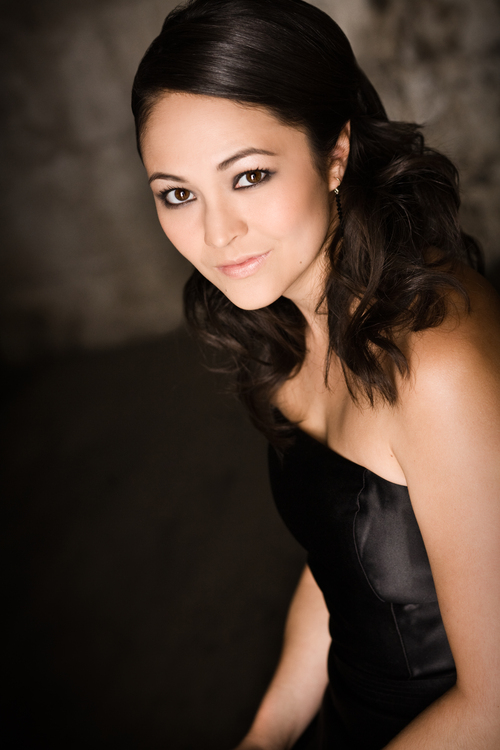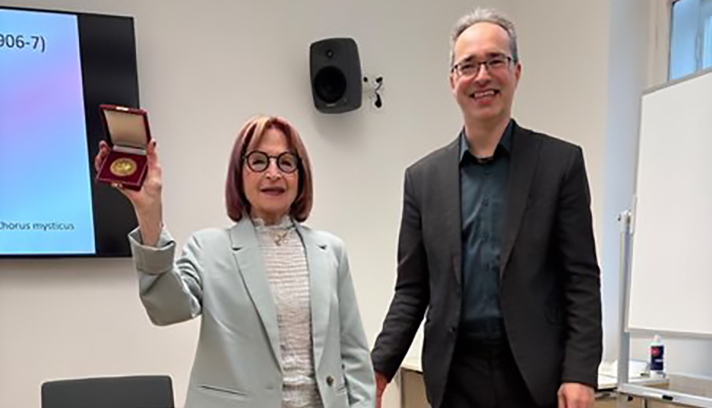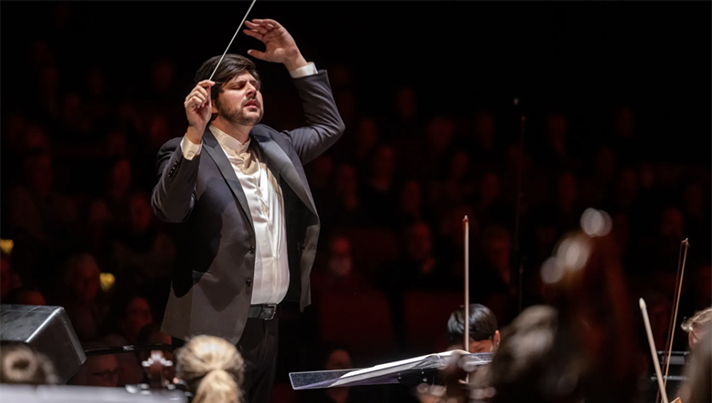By Aryn Strickland
Mezzo soprano Debi Wong (BMus ’08) believes that opera has the potential to create dialogue about underrepresented groups that all too often it goes unrealized. Even at major houses like the Metropolitan Opera, modern productions are still trapped in traditions and tropes which she says have consequences for our society.


Alumna Debi Wong (BMus '08)
“If we are always telling the story about the woman in distress and the man who saves her, does that affect our cultural values?” she asks. Wong’s adaptation of Acis and Galatea premiere in September brought that question directly to Vancouver audiences.
In the production Wong played the character Acis, who in the original opera is a shepherd in love with Galatea, a nymph. The two are persecuted for their love by the god Polyphemus. By changing one character’s gender and the mythical elements of Handel’s pastoral opera, Wong sought to create a space for the LGBTQ community in opera and make it more accessible to modern audiences.
“I think someone who produces opera can have an influence on the way people think about relationships. By putting two women who fall in love we can give voice to underrepresented people that we don’t traditionally see on an operatic stage.”
But it was no easy feat.
To change the character of Acis, Wong had to make significant changes to the libretto. It meant rewriting some of the text, adapting the 18th century language, pulling some songs from different places and then piecing the score together. Wong also looked at all three of Handel’s different written versions of the opera. Using these different versions she lined up the story points and when something was missing it gave her more music materials to draw on. For the story’s emotional climax, she adapted a passionate duet from Roselinda, another Handel opera.
WATCH: The trailer for Debi Wong’s Acis and Galatea
“I knew what I wanted to say. It was just a matter of making it fit with the musical rhythms and that is actually a little tricky and some of it I am not completely happy with,” she says.
One of the easiest parts was looking at Acis’s sections which in the end did not have to be adapted at all. “Handel had created a version of Acis and Galatea for one of his favourite castratos, Senesino, and it fit my range very well,” she says. “When I found that version written for him I didn’t have to change any keys or move anything at all. It is a bit lower, but that suits me well.”
Although taking the work of a legendary composer like G.F. Handel might sound daunting to some, for Wong, “It felt great.”
“When I first started studying classical music and singing in my undergrad, I was always afraid of ruining a composer’s work,” she says. “I think of the composer— whether they are a living composer, or whether they are G.F Handel— as one, equal, collaborative voice in a performance.”
Then of course there was putting the actual production together. Wong developed the piece for Re:Naissance, a theatre company Wong helped form three years ago, with a mission to rewrite opera for the 21st century by mixing genres and adapting period pieces. While Re:Naissance is still relatively small, there were a number of different collaborators, namely BC Living Arts and Early Music Vancouver that helped produce show, as well as the Finnish Orchestra, Ensemble Nylandia to help perform it.
“To change the character of Acis, Wong had to make significant changes to the libretto. It meant rewriting some of the text, adapting the 18th century language, pulling some songs from different places and then piecing the score together.”
From the beginning of the project collaborators were interested in Wong’s unique approach to the beloved story. “The other companies that we connected with were really enthusiastic and supportive of the adaption,” Wong says. And it wasn’t just Vancouver opera companies that loved it: the adaptation was named one of Vancouver Classical Music’s best operas of 2017.
“Even though we are completely unknown and doing something completely different we had lots of people write to us and come to talk to us afterwards to tell us how much they enjoyed it,” Wong says.
Following the show’s success in Vancouver, Wong is planning on bringing her adaptation of Acis and Galatea to Finland, where a more than half of her career is based. Since starting her doctoral studies at Sibelius academy in Finland, Wong is a part of a couple different experimental ensembles, including a guitar, lute and voice trio. Through being able to play with different genres of music and theatre Wong regained her passion for performing. It was something she says she struggled with after she graduated from UBC.
“I used to have really bad stage nerves, so I didn’t think that I could actually be a performer,” she says, “but then I realized that I was really interested in creating new kinds of performance. My stage fright never really left me and I realized it was because of the performing I was doing.”
A combination of stage directing, solo singing, working with her ensembles and producing new adaptations for Re:Naissance has given Wong an outlet to perform the kinds of productions she hopes will create dialogue about the importance of representing different voices and communities in the classical arts.
Her advice for new emerging musicians are along those same lines: “You don’t have to fit into a box, especially singers. I feel like for singers we are taught to sing a certain way and perform a certain way and that didn’t work for me and it took me a long time to figure out it didn’t have to work for me.”
Wong has more progressive opera projects in the works. Through re:Naissance Wong has a new commission in development, called Sanctuary and Storm. with composer Tawnie Olson and librettist Roberta Barker. The opera will focus on the lives of Hildegard von Bingen, a 12th-century abbess & composer, and Eleanor of Aquitaine, a 12th-century Queen Consort of France, and their struggles to understand their places in the world as women. It continues Wong’s interest in addressing the underrepresentation of women in opera both on and off the stage.


